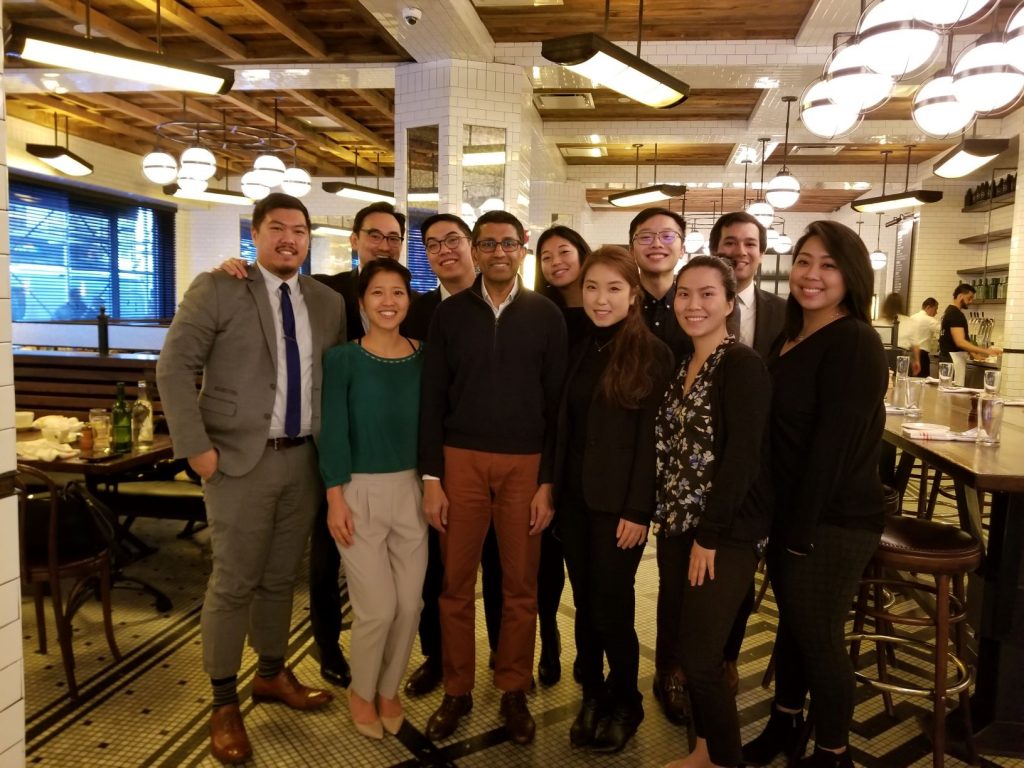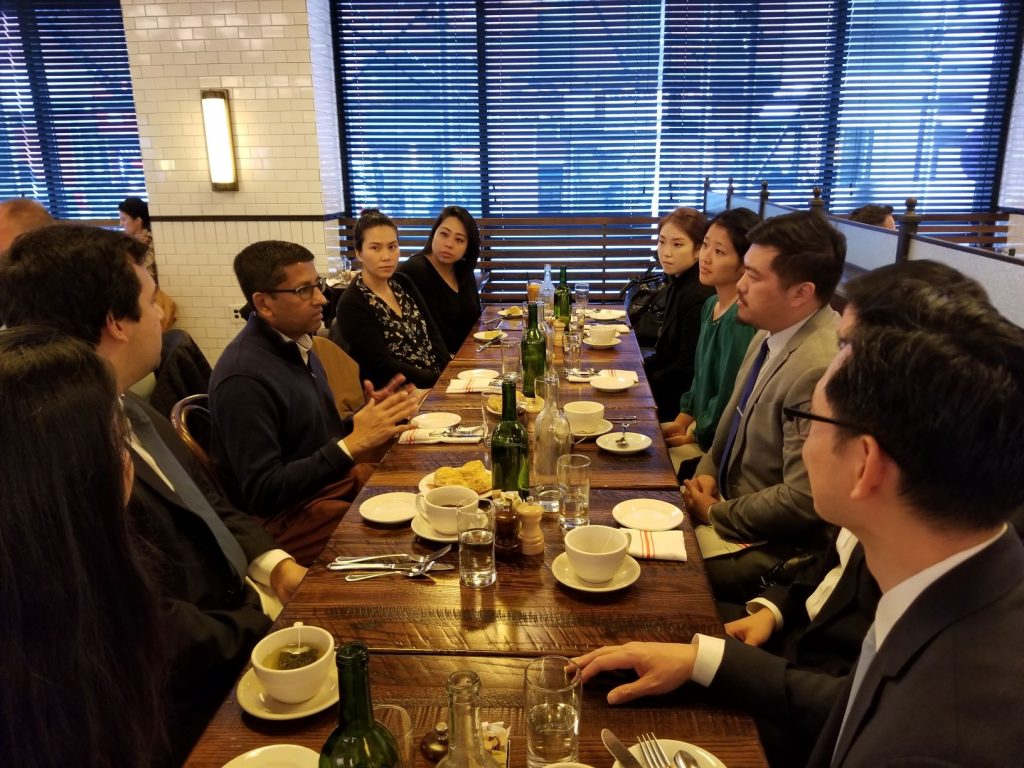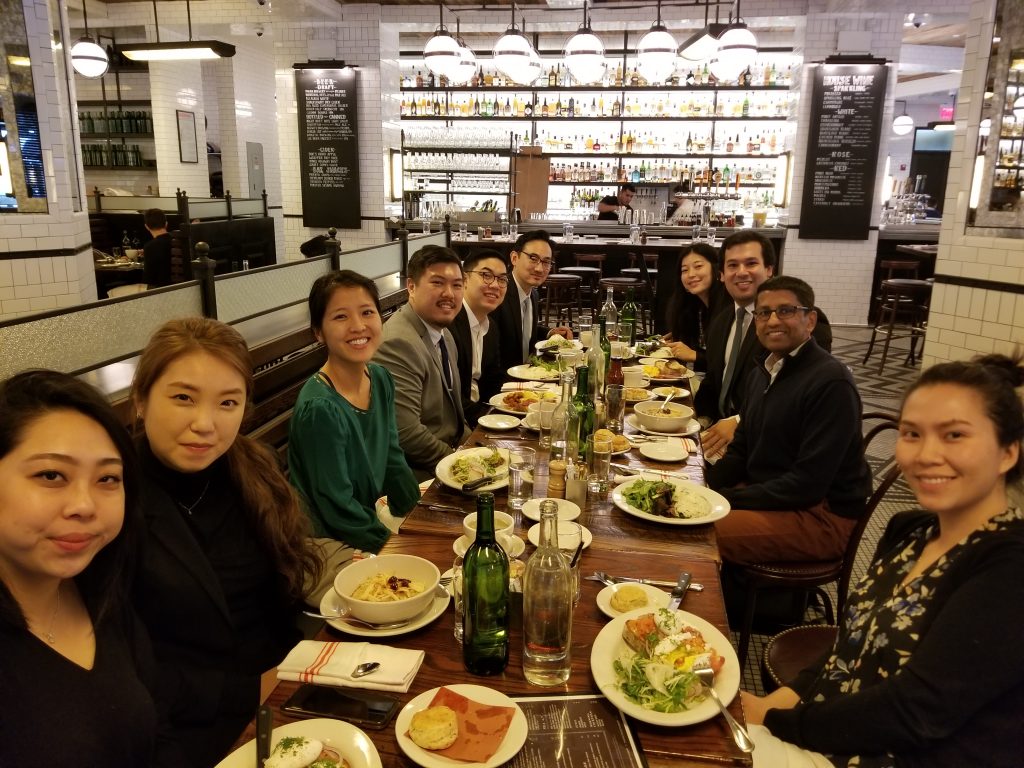
On Thursday, February 27, AABANY hosted a breakfast event for law students with Chief Judge Sri Srinivasan, U.S. Circuit Judge of the D.C. Court of Appeals, at The Smith in NoMad. Judge Srinivasan was in town for AABANY’s 2020 Annual Dinner where he was presented the Public Service Leadership Award, and the judge was gracious enough to take the time the next morning to advise students pursuing careers in law. Judge Srinivasan familiarized students with his many life experiences by speaking about his upbringing, education, and career. Everything from his judicial philosophy to his love of sports provided attendees with important nuggets of wisdom and essential insights.
Judge Srinivasan elaborated extensively on the three guiding principles that have shaped his life and his service: doing great work, being a good person, and assuming the best of those around you.
For his first tenet, Judge Srinivasan addressed the familial and social pressures that are widely prevalent in the Asian-American community, acknowledging the constant push to “climb the ladder” and focus heavily on quantifiable success. However, despite this pressure, he insists that the goal of students shouldn’t be to chase after the most lucrative opportunities to bolster a resume, but instead, students should strive to give their best and humble effort to everything that they do, no matter how small or invisible. Such persistence will pay off and be recognized in the long-run.
Regarding his second principle, the judge drew heavily from his own experiences with people in the legal field. He insisted that acting transparently in good-faith and modeling kind behavior will in turn make people feel heard which increases the likelihood of reaching mutually beneficial agreements. Judge Srinivasan remarked on how surprised he has been in the past by the benefits of simply listening to others. His way of approaching interacting with other people has influenced those around him, garnering the respect and trust of his peers.
Finally, Judge Srinivasan insists that, despite our initial inclination to expect the worst of others, there are pleasant surprises to expecting the best of others. Especially in such a partisan environment, he insists that it is important to treat traditional “adversaries” not as ill-intentioned individuals but as normal people with differences in how they approach universal problems. By viewing other people as different rather than evil, the judge believes that compromises can be reached more quickly and effectively.
After giving students background on his experiences and philosophy, Judge Srinivasan opened himself up for questions from the attendees. Many of the students focused particularly on how they can better represent their ethnic communities and perform optimally in the field.
Since some of the students present are leaders of affinity groups on their respective campuses, the judge applauded the efforts of the student leaders and addressed the importance of student advocacy groups. He referenced a common saying by his sister, “it’s hard to be what you can’t see,” to reveal how these minority cultural groups give face to their community and provide the next generation with role models to look up to. While he acknowledged this responsibility to represent is daunting and can feel lonely at times, Judge Srinivasan believes that student leaders should reframe their thinking to feel excited in the face of adversity.
Regarding how to achieve success in the field, the judge suggested looking for mentors who look out for your best interests, preparing for cases thoroughly, and embracing fluidity in argumentation. On a concluding note, Judge Srinivasan stressed the importance of establishing credibility in the forum by advocating zealously while still demonstrating objectivity.
AABANY thanks Judge Srinivasan for his valuable time and thoughtful advice! If you are curious about the judge’s work, please feel free to click the link below as the D.C. Court of Appeals is one of the only appeals courts that livestream oral arguments on its website. Details at https://www.cadc.uscourts.gov/internet/home.nsf/Content/Oral+Arguments
Thanks to AABANY Legal Intern David Jung for the write-up and photos.



